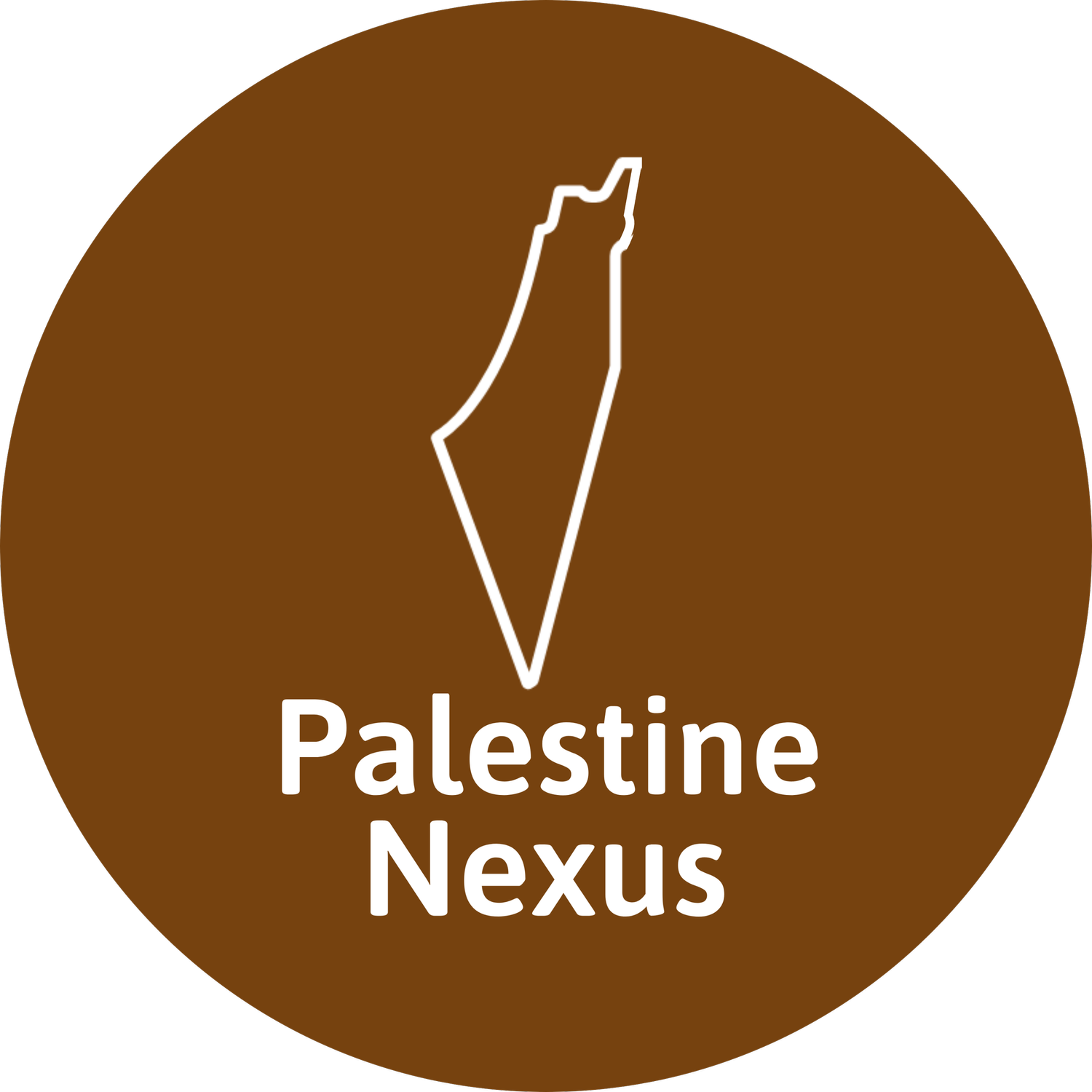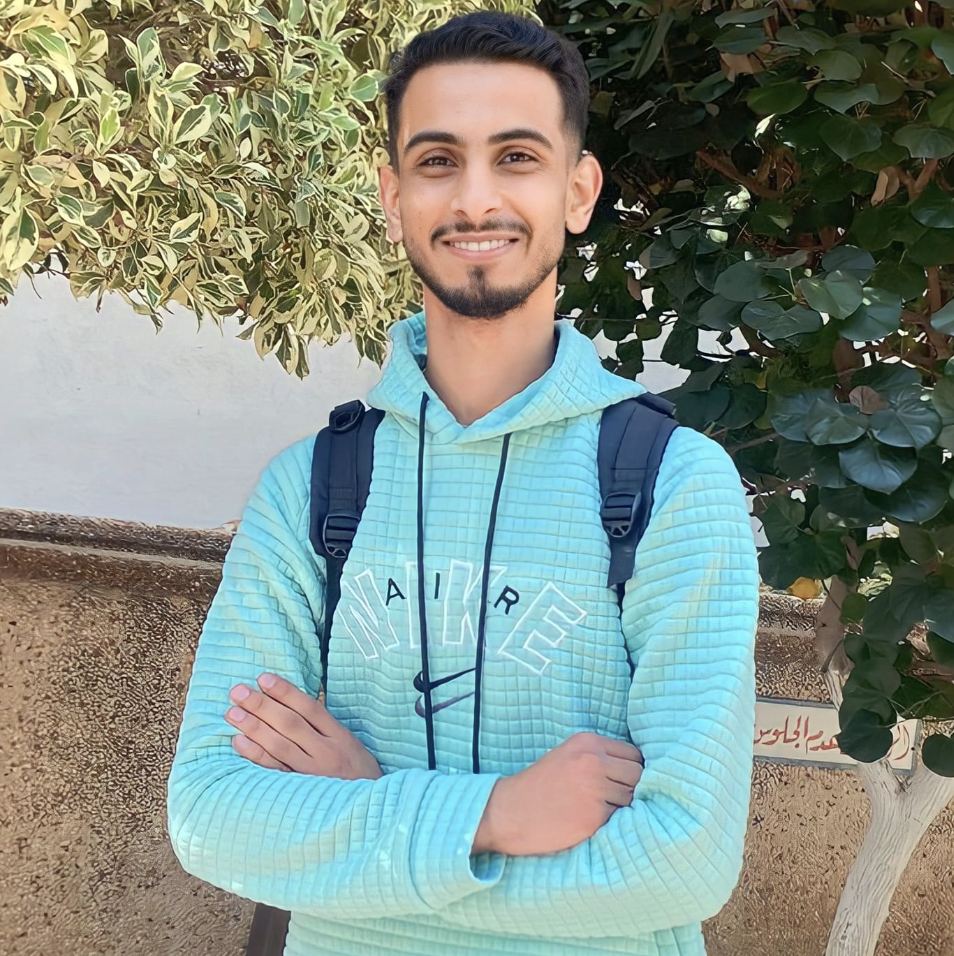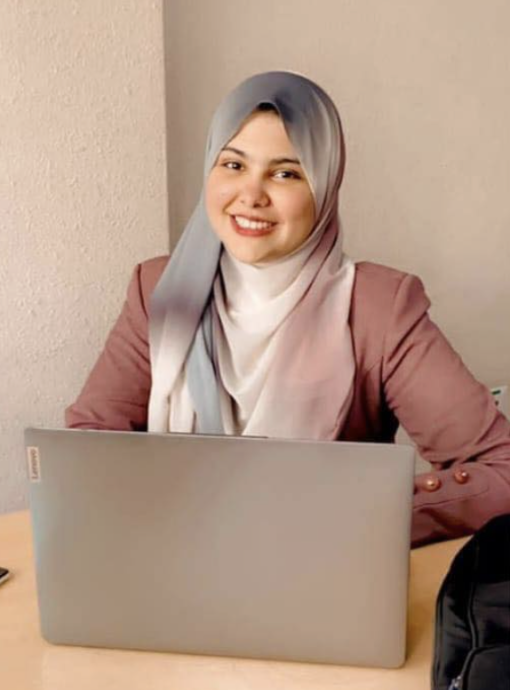Palestine Nexus writers reflect on two years of genocide
Ghaydaa Kamal, Dalal Sabbah, Hani Qarmoot and Rama Hussain AbuAmra (left to right)
October 16, 2025 — The Palestinian people of Gaza have lived through two years of genocide. And yet, despite the unrelenting forced displacements, the starvation campaign and the mass murder, Gaza’s young writers refused to be silenced. They have reported on their own famished bodies, near death experiences and the struggle in Gaza to find food, medicine, water and shelter. They travel hours to find an internet connection and they write on empty stomachs while supporting their families and helping those even less fortunate. They are risking their lives every day to tell Palestine’s stories to the world, and we will forever be in awe of their courage and resilience. Here are some of their reflections looking back over the past two years.
-Dr. Zachary Foster, founder, Palestine Nexus
Hani Qarmoot, 22, journalist and storyteller from Jabalia camp
"During the two years of genocide, every day was marked by hunger, displacement, bloodshed and the sound of explosions. For the sake of our survival, the continuation of our stories, and the recognition of our suffering and laughter, I write in the dark. Even though I've lost friends, coworkers, teachers, and loved ones, their memories of me keep me going. The sound of a child laughing, a friend's message, or the quiet in between the explosions are all things that give me life. Writing is a silent act of resistance that shows we are still alive. Our words are our shield, and our voice will never be silenced.”
— Hani Qarmoot
Rama Hussain AbuAmra, 23, writer and translator from Gaza City
“I still struggle to believe this genocide might truly be ending. For two years, we lived through a nightmare that stole every trace of love, safety and joy. We were stripped of our homes, our memories and people we hold dear. Every moment was soaked in fear - fear of losing ourselves, fear of losing those we love.
One night haunts me more than any other: October 10, 2023. At 1:30 a.m, a call came, warning us to evacuate our building before it would be bombed and reduced to rubble. How do you fit a lifetime into a single bag? My childhood, my books, my favorite clothes, the corner I loved at dawn and dusk, all left behind. We ran, breathless, to a nearby hospital, waiting for the unknown. Then came the sound of the explosion that shattered our home and hearts. The next day, we fled to Al-Zawaida in southern Gaza, only to witness another horror: 25 souls from one family wiped out. Smoke filled our lungs, glass rained down, and blood painted the ground. I still see the ash, the shattered windows, the scattered limbs.
We survived, somehow. But the scars remain. And now, we wait not in peace, but in fragile hope.”
— Rama Hussain AbuAmra
Dalal Sabbah, 20, English translation major from Rafah
“Over the past two years, I have taken on the challenge of documenting life in Gaza, ensuring that our stories reach the world beyond the rubble and the silence. Every day has been a test of endurance, yet I remained steadfast, because these stories deserve to be told.
Despite repeated displacement, exhaustion, constant fear, and the proximity to death; despite losing many of my family members, I had to keep writing to record these moments and honor the memory of those we have lost. Writing became more than a profession; it became a silent cry from the heart to the world, a testimony to lives that defy death each day, and proof that our voices will not vanish amid the smoke and debris.
Even when despair presses down, I continue. I write, I speak, I witness, because this is my duty to my people, to my homeland, to Palestine.
And no matter the obstacles, Palestine is free, from the river to the sea.”
— Dalal Sabbah
“Although the Israeli occupation’s genocide has ended and I have survived, nothing that was taken from me will ever be returned. I have lost two dear friends, Mohammed Hamo and Abdullah Al-Khaldi, along with my home and the life I once knew before October 7, 2023.
Since that day, life as I knew it was destroyed. The past two years have been marked by displacement, starvation, fear, and constant loss.
I hope the ceasefire will hold, but I struggle to believe it will. During the last ceasefire in January, my grandfather and uncles returned to Gaza to rebuild their lives from the rubble. But it was a trap; the genocide resumed, and everything they had rebuilt was gone.”
— Khaled Al-Qershali, 22, freelance journalist from Al-Nasser
Ghaydaa Kamal, 23, journalist and translator from Khan Younis
“Every story I write feels like a battle for survival. I’ve written from the ruins, from tents, from places where electricity and the internet are miracles. Sometimes, I walked for hours under the burning sun because transportation was too expensive, and because silence was not an option.
My laptop carries the dust of my destroyed home. I pulled it from under the rubble after an airstrike, cleaned it with trembling hands, and brought it back to life. It has frozen, shut down, and failed me many times, yet it keeps surviving, just like me.
I have written through hunger, exhaustion, and fear, documenting what it means to live and work under constant bombing. There were moments I escaped death by mere minutes.
But I keep writing, because if I stop, they will win—not just by killing us, but by erasing our stories.”
—- Ghaydaa Kamal
Subscribe to the Palestine Nexus Newsletter:






